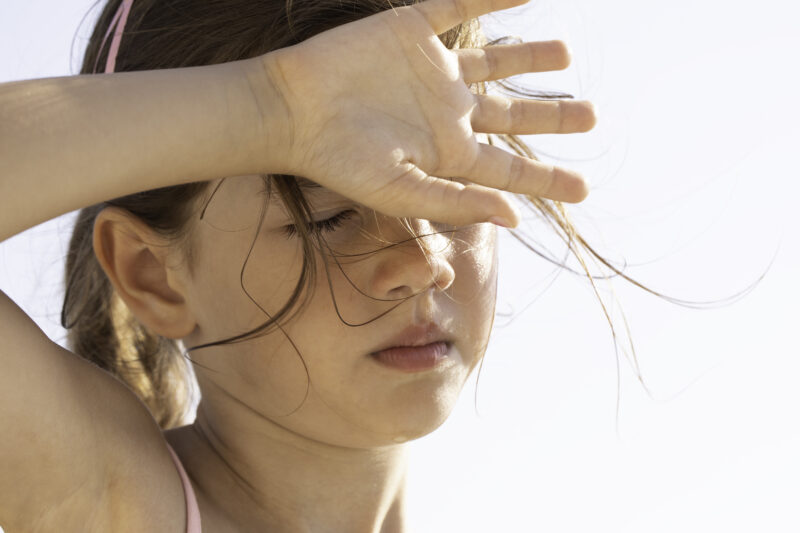Summertime means more outdoor fun for kids, but along with fun in the sun comes the risk of heat-related illness. The National Weather Service says that heat indexes at or above 90 degrees can pose health risks. To get more information on how you can ensure your child enjoys the summer heat without overheating, Dr. Alex Miksit, provides some tips.
High temperatures can cause dehydration, heat exhaustion, cramping, heat stroke (which is a medical emergency) and irritability.

“When it is hot outside, children should avoid direct sun if possible. It is best to play in the shade. They should drink a class of water before starting their activities outside then take a water break every 15-20 minutes,” said Miksit.
The amount of liquids your child should consume to stay hydrated when it’s hot varies by age group, Miksit explained.
“No water should be given to children under 6 months of age. Everything they need is in the formula or breast milk. For a child between six and 12 months they should have no more than 4 to 8 ounces of water a day. A child between 1-3 years of age needs around 4 cups of liquid. A child who is between 4-8 years of age needs 5 cups of liquid. After 8 years of age they need 8 cups of liquid,” he said.
When it comes to the type of liquid to give your child on hot days, Miksit recommends water unless your child is sweating excessively. If your child is sweating a lot, then a sports drink would be a better option.
“There are other ways to get extra fluids. Give children popsicles, watermelon, grapes (cut up based on age) and citrus fruit,” he said.
If you don’t have air conditioning at home during times of high heat, Miksit suggests heading to a pool, splash pad or an air-conditioned place like the movies or mall. You could also use fans at home to keep your family comfortable.
What are the signs of a heat-related illness?
If your child is overheated, they will likely show symptoms like cool, moist skin with goose bumps when in the heat, heavy sweating, feeling faint, dizzy or fatigued. They could also experience a weak, rapid pulse and muscle cramps.
“If you notice these signs, you should get the child to rest in a cool place. Go to an air-conditioned building. If air conditioning is not available, then go to a shady spot or sit in front of a fan. They should drink cool water or sports drinks. Make sure to loosen their clothing. You can place a cool wash rag on their forehead or back of the neck,” he said.
Call your child’s pediatrician if they develop:
- Feeling faint
- Extreme tiredness (eg, unusually sleepy, drowsy, or hard to arouse)
- Headache
- Fever
- Intense thirst
- Not urinating for many hours
- Nausea
- Vomiting
- Breathing faster or deeper than normal
- Skin numbness or tingling
- Muscle aches
- Muscle spasms
“If someone is in the heat for an extended period of time, they can develop heat exhaustion. This can happen if there are several very hot days in a row. They may be hot and their body has had no chance to cool down. Symptoms may be dizziness, confusion and nausea. This is more serious, and they should immediately get somewhere where they can cool down. Also, a car will be 43 degrees warmer on the inside than the temperature outside the car. So, avoid leaving children in a car without the air conditioning running. It could quickly kill a child,” Miksit said.










